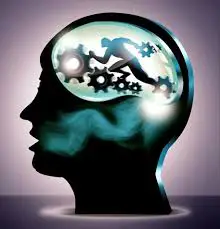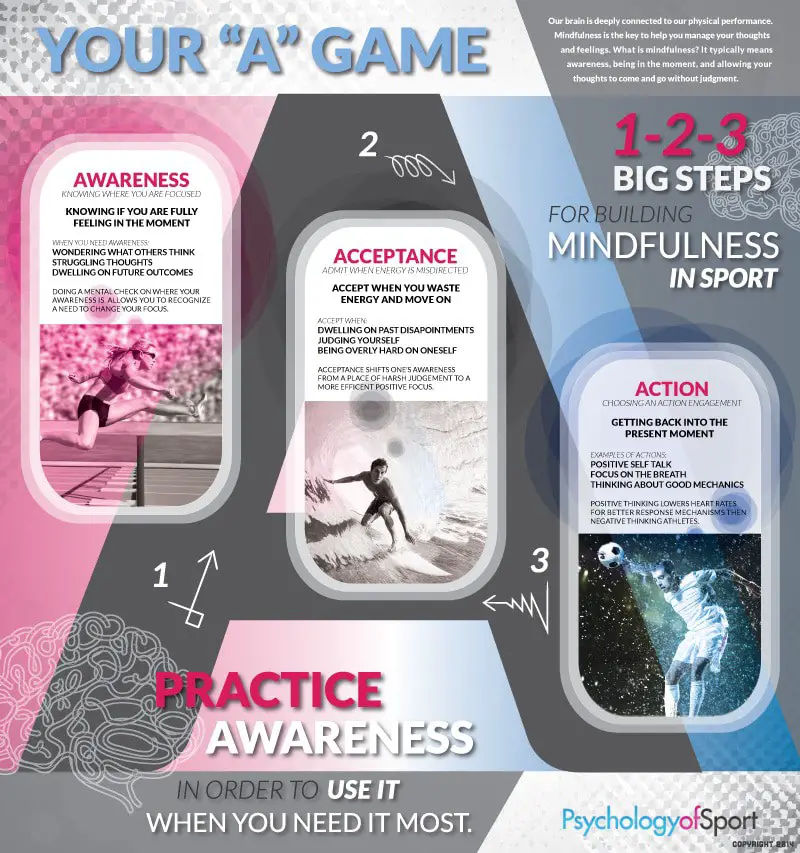 Mindfulness. Meditation. These are big buzzwords in the world of sports.
Mindfulness. Meditation. These are big buzzwords in the world of sports.
It may seem odd that elite athletes engage in meditation to improve performance but modern research shows that mindfulness techniques, including meditation, may be the key to improving athletic performance. Our brain is deeply connected to our physical performance. Do you know simply thinking takes energy? Do you know tuning into to your emotions can help you perform better? Mindfulness is the key to help you manage your thoughts and feelings.
What is mindfulness? Mindfulness signifies awareness, being in the moment, and allowing your thoughts to come and go without judgment. The process of mindfulness has three important steps:
*This post may contain affiliate links. As an Amazon Associate we earn from qualifying purchases.
1. Awareness means knowing where you are putting your focus. Are you fully engaged in the moment or task? Imagine being on a surf board and smoothly riding the wave. This is the feeling of being in the moment. When you are struggling with too much thinking and with splitting your focus, wondering what others think or how the event will end, you lose the present focus. Awareness on your part would help you to know that you need to bring your focus back. For example, if a triathlete finished his swim and did not like his time and then gets on his bike and dwells on the swim he loses his focus which takes away from a good performance on the bike. If he did a mental check in with himself he could recognize this mistake and make a change in focus.
Athletes need to build the skill of awareness. This can be done several ways: engaging in a regular, ongoing meditation practice, doing a regular yoga practice, especially one that includes balance poses, or doing body check-ins.

2. Acceptance means admitting to yourself that you are dwelling on thoughts from the past or disappointments. Rather than judging yourself or getting caught up in “WHY DO I DO THAT WHEN I KNOW BETTER?”, mentality you need to admit that you need to make a mental change. You need a more productive focus and a different action. Athletes lose energy when they get overly hard on themselves. For example, if the triathlete checks in with himself (awareness) and then realized he was spending too much mental energy dwelling on the swim he can either then be upset with himself because he knows better (this wastes energy) or accept he is doing this (“Yes, I am focused in the wrong place right now”) and make a switch. This would be a more efficient use of energy and takes the athlete to step three.
 3. Action means choosing to engage in a simple mental or physical action step to get you more in the present moment and focused. This can include more positive self-talk, reminding yourself to breathe and focus, or choosing a specific action focus such as good mechanics on the bike. Annie Pokorny, a professional Nordic skier, recently wrote an article in BirchScroll saying that positive-thinking athletes are likely to have lower heart rates and better response mechanisms than negative-thinking athletes. Think of it like fuel or energy. Positive, challenge-type focus can fuel you. Every athlete needs good fuel like this to perform well.
3. Action means choosing to engage in a simple mental or physical action step to get you more in the present moment and focused. This can include more positive self-talk, reminding yourself to breathe and focus, or choosing a specific action focus such as good mechanics on the bike. Annie Pokorny, a professional Nordic skier, recently wrote an article in BirchScroll saying that positive-thinking athletes are likely to have lower heart rates and better response mechanisms than negative-thinking athletes. Think of it like fuel or energy. Positive, challenge-type focus can fuel you. Every athlete needs good fuel like this to perform well.
Below is a presentation that explains the importance of the 3 As: Acceptance, Awareness and Action. The slide about Awareness shows a Youtube video that shows what it looks and feels like when there is a LACK of awareness. Sometimes we can learn more about what we do want by witnessing what we don’t want.



